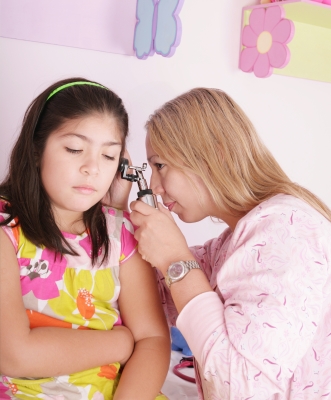*This is a guest post.
Doctor-phobia can make life difficult for you and your child, and can lead to a life-long fear of health providers that can have lifelong consequences. If your child hates going to the doctor, here are a few tips to help make appointments less stressful for you, your child, and your pediatrician.
Ask and Listen
A lot of people suffer from various kinds of phobias, they are not uncommon. Some people can have rare phobias like the fear of sunlight (Heliophobia), where as others can have the more common phobias like the fear of height (Acrophobia) and fear of failure (Atychiphobia). You should note that your child is facing something that a lot of people might face, and try to the reasons behind their fear.
There are many reasons why your child may dread doctor’s visits. They may hate the noise of the waiting room or the smell of the exam room; they may associate the doctor with feeling unwell; or they may have bad memories of getting shots or being held down and examined.
- Use age-appropriate communication to ask your child how they feel about doctor visits. You can achieve this through storytelling, playing pretend, reading and discussing a book together, or other methods that your child is comfortable with.
- Your child may not be able to clearly state why they feel how they feel; by listening to the words and context, you can extrapolate the reasons better than they can state them.
Talk to Your Doctor
Once you’ve figured out some of the reasons why your child has doctor-phobia, it’s time to get on the phone with your pediatrician/primary care doctor and discuss the issue. They have seen and taken care of hundreds or even thousands of children, and can draw on past experience to provide you with advice on how to deal with your child’s specific issues. Together, you can come up with a strategy for helping your child overcome their fear. Your tactics can include:
- Letting your child sit on your lap during the exam.
- Letting them bring along a stuffed animal or other comforting item.
- Letting your child meet the doctor in their office or waiting room for an introduction. That way they’ll focus on the doctor, who can talk to your child, offer them a treat or toy, show them how the stethoscope works, and create a new, more positive association centered around “making a new friend.”
Get Better Care with a Health Program
Doctors are busy people, and while they care about your child’s health, many don’t have the time in a busy medical practice to spend helping your child work through their phobia. However, what’s true for a traditional medical office isn’t the same for a supplemental health program. Doctors affiliated with these programs carry a much lower caseload of patients. This means that they have more time to spend on each patient – on the phone, in the exam room, and in their files.
- You can alleviate your child’s fears better when your doctor’s office is less rushed, and the doctor is able to spend more time with you and your child. Doctors who are part of MDVIP’s comprehensive primary care plans, for example, can dedicate more time and resources to providing for your child’s physical and emotional well-being.

The Waiting Room
Finally, be sure to prepare ahead of time for managing your child’s anxiety in the office’s waiting room. The long wait, strange people, and imminent doctor encounter can make the waiting room the most agonizing part of a doctor visit.
- Games, storybooks, beloved toys, or even your cell phone can help distract your child from where they are and what they’re waiting for.
- Remember that your child’s behavior is caused by anxiety and fear. Don’t hesitate to offer comfort and reassurances that the doctor is nice, the appointment will be over soon, and you’ll be there with them the entire time.
Being willing to visit a doctor when necessary is an important skill for both children and adults. Many children pitch a tantrum when faced with an imminent doctor visit, and many adults will put off important tests and exams out of that same anxiety. Helping your child learn to overcome their fear will not only make visits to the pediatrician easier – it will help them stay in good health as adults.
Great tips! Thanks for giving me some fresh ideas, shot visits are the worst!
you are welcome. This is also very applicable to me for someone with a toddler…